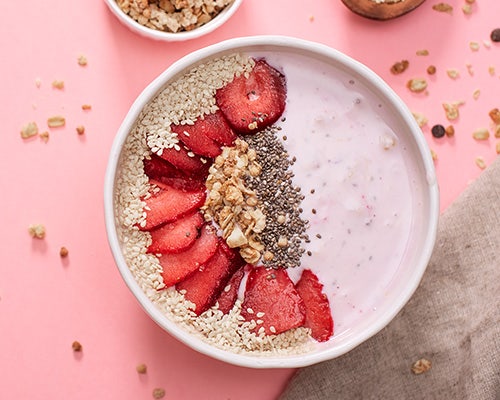Wise Up On Women’s Health
- 9/27/16
A beautiful woman is a beautiful woman, but a beautiful woman with a brain is an absolutely lethal combination. - Prabal Gurung With age comes wisdom. Women 50 years and older become wiser and more worrisome of long-term health risks and consequently, should integrate a preventive approach to maintaining wellness. Even though 50 is the new 40, your cellular, your skeletal and your muscular makeup is chronological and it requires routine maintenance.Once a woman reaches the graceful age of 50, visible and measurable body and health changes are more likely to occur. The reduction of collagen and elastin in your cells reveals more noticeable fine lines, wrinkles and sagging skin. Hormonal fluctuations result in weight gain, hot flashes, night sweats, vaginal dryness and lower libido. Your body’s metabolism rate slows, incurring weight gain and making weight loss even harder to achieve. Reduced bone density leads to bone fractures and breaks.Routine medical checkups of blood pressure, cholesterol, mammogram and PAP test will now include additional and more accurate screenings such as a colonoscopy and bone density exam or test.Are you concerned with 5 of the most common health risks for women 50 and over?
-
Menopause
-
Weight Gain
-
Cholesterol
-
Osteoporosis
-
Heart Disease
Dr. JoAnn V. Pinkerton, Executive Director of the North America Menopause Society, advises women to tackle the effects of menopause with a few of the following tips:
-
Eat less, exercise more. Choose a Mediterranean diet and schedule time for exercise.
-
Alleviate painful sex and vaginal dryness with lubricants and moisturizers. Speak with your healthcare provider about other prescribed alternatives.
-
Get regular exams. You can’t treat a problem you don’t know exists.
Age-related weight gain is real. A study published in the American Journal of Health Promotion, which followed nearly 200 middle-aged women for three years and tracked eating patterns, overall health and lifestyle, found women who did not change their eating habits as they aged were 138 percent more likely to put on 6.6 pounds or more during midlife. According to John Hopkins University, the rate of muscle mass loss rapidly escalates between the ages of 50 and 70. As a result, a woman’s body will burn fewer calories than it did when it was younger. The best way to battle the bulge is to develop new eating habits, decreasing the intake of high-sugar foods, saturated fats and carbohydrates while increasing the intake of fruits, fish and vegetables to achieve effective weight loss.Osteoporosis (low bone mass) affects 54 million Americans over the age of 50, according to the National Osteoporosis Foundation, and by 2020, will affect 64 million. Osteoporosis is a leading cause of frequent bone breaks and fractures which can dramatically impact overall health and quality of life. Prevention and bone protection recommendations from the International Osteoporosis Foundation include sunlight exposure, maximizing physical activity, consuming extra fruit and vegetable servings and supplementing your diet with vitamin D and calcium.The fact that heart disease is the number one killer of women is quite disheartening, and your risk grows with age. Menopause doesn’t cause cardiovascular disease, it’s those bad habits from a previous time—such as smoking, obesity, and lack of exercise—that begin to take a registering toll on heart health in the 50 and over woman, according to the American Heart Association. Just as alarming is a September 2015 report issued by the CDC on “heart age” versus biological age which illustrated that women, on average, have hearts that are five years older than actual age. The CDC discovered that more than one in three female adults have some form of cardiovascular disease and that an overall increase in heart attacks among women was seen about ten years after menopause.The best way to get a handle on the five most common health risks for women 50 and over is to be diligent about your checkups and communicate any and all concerns to your doctor. Ask for a blood chemistry report and keep track of your cholesterol, blood pressure and bone density numbers. To age gracefully, you must make yourself a priority, integrate preventive measures and be proactive about your health.




